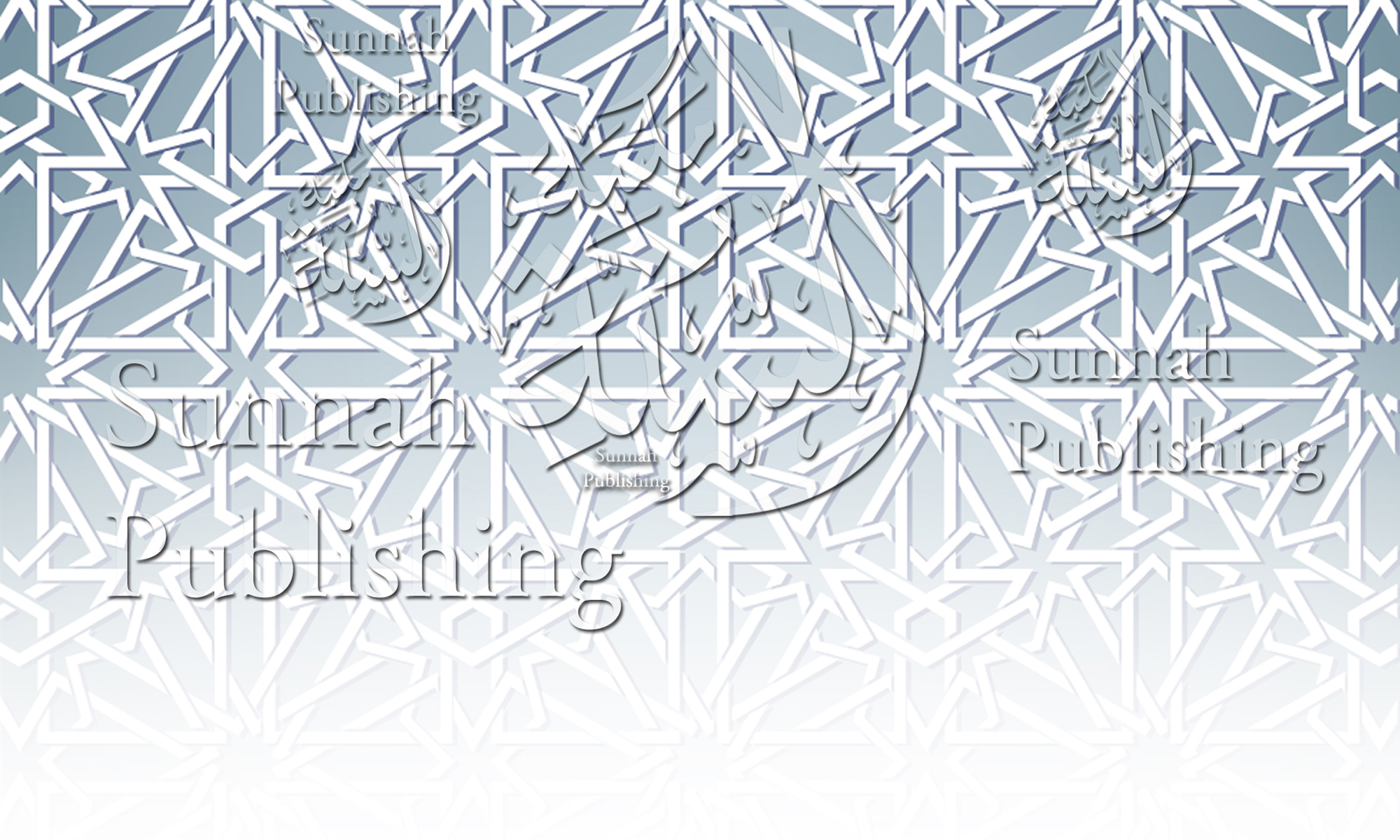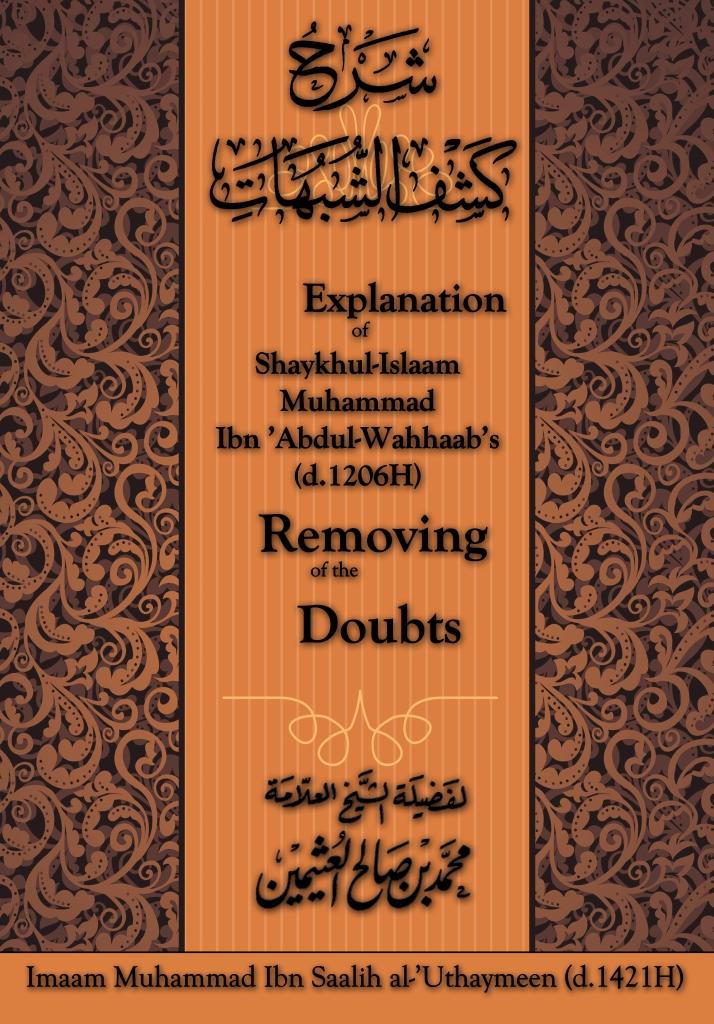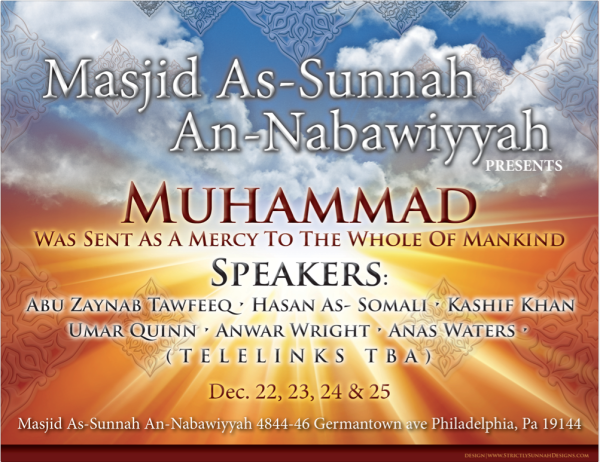[fap_track id=”2223″ layout=”list” enqueue=”no” button_enqueue=”no”][wpdm_package id=53]
Shaykh Aboo ‘Umar Usaamah al-‘Utaybee on the Statements of Muhammad Ibn Muneer “Muftee”
[Q]: O Shaykh Usaamah, perhaps you have heard about the statements of an individual named Muhammad Ibn Muneer, he has made some statements. And we would like your comments on his statements O Shaykh, if you would be so kind.
[A]: What are his important statements that he says?
[Q]: He differentiates between ar-Radd ‘alal-Mukhaalif (refuting the opponent) and al-Jarh wat-Ta’deel O Shaykh. So he says for example yaa Shaykh, ar-Radd ‘alal-Mukhaalif (refuting the opponent) is one thing and al-Jarh wat-Ta’deel is something else. Meaning, whosoever mixes between the two falls into problems and fumbles about…
[A]: Fine, we will begin with the first affair, may Allaah bless you. Then we will move on to the second affair. do not know this individual, but I will speak about these things that you are mentioning from the one who said them. So this statement, it is the differentiation between ar-radd ‘alal-mukhaalif (refuting the opponent) and al-Jarh wat-Ta’deel as a complete differentiation, this indicates the ignorance of the one who spoke of it. And when Allaah the Mighty and Majestic mentioned Fir’awn with kufr (disbelief) and that he claimed Uloohiyyah (divinity) and he claimed Ruboobiyyah (Lordship) for himself, and He mentioned his disbelief in Allaah the Mighty and Majestic and his striving in that, in the aayah of Allaah,
“And they belied those aayaat wrongfully and arrogantly, though their own selves were convinced thereof. So see what was the end of the mufsidoon (evil-doers).” [Sooratun-Naml 27:14]
Then is this not a Jarh upon Fir’awn? And is it not also from the radd (refutation) upon Fir’awn? The refutation upon his belief comprises al-Jarh wat-Ta’deel. So al-Jarh wat-Ta’deel is an aspect of enjoining the good and forbidding the evil and it is an aspect of refuting the statements of the opponent (ar-radd ‘alal-mukhaalif). So when he speaks about and claims that there is a difference between that and al-Jarh wat-Ta’deel, then this indicates his ignorance and his misguidance. because al-Jarh wat-Ta’deel is a part of and cannot be separated from ar-radd ‘alal-mukhaalif (refuting the opponent). Yes, it is true that refuting the opponents and those who have erred does not necessitate at-tajreeh (disparagement). For example, when a Scholar of the Sunnah slips up and errs, then he is refuted with knowledge, but he is not disparaged (jarraha) due to that, especially when he is known for being upon the truth and striving to attain the truth, except that he has slipped up and erred in an issue. So this involves the occurrence of an error amongst the righteous and the trutfhul and refuting their error. This is to be mentioned and refuted.
However, when the opponent who is being refuted is an innovator or a disbeliever, then the refutation upon him is not excluded from al-Jarh wat-Ta’deel, not from the Jarh upon this disbeliever, nor from the Jarh upon this innovator. This is because you are refuting his corrupt principles, which necessitate Jarh of him and expelling him from the Sunnah if he falsely and slanderously ascribes himself to it. If the opponent reaches the level of a disbeliever or an innovator or a faasiq who is criminal in his belief and his statement, there is no doubt that the refutation upon him includes tajreeh (disparagement) of him, because these errors that he has committed obligate that he be refuted.
As for when what is intended by mukhaalif (opponent) is an opponent in an issue of ijtihaad (independent reasoning), or when the opponent is someone from Ahlus-Sunnah who slips up and errs but he is generally upon the truth, then this does not necessitate tajreeh (disparagement) of him. Rather, his error is refuted. So this is the detailed explanation of the issue. The one who says that al-Jarh wat-Ta’deel has no connection to ar-radd ‘alal-mukhaalif or that there is a complete differentiation between the two of them, then such an individual is an ignorant liar. And Allaah knows best.
[Q]: May Allaah reward you with goodness yaa Shaykh! He also says, “Obedience to the rulers and the Scholars is not unconditional. Rather, it is restricted. If an individual says something that you do not agree with, then it is not permissible for someone to tell you, ‘It is obligatory upon you to accept his statement because he is a Shaykh, or because he is Shaykh so and so, or that Shaykh so and so said.’ This is not what the aayah said.” And, Shaykh Usamaah, he intends by this to reject what Shaykh Rabee’ said about Taahir Wyatt because made this statement during his defence of Taahir Wyatt.
[A]: Yes. This philosophy, with which some of the people philosophize, it is rejected from its proponents, because obedience to the Scholars and the rulers and obedience to the parents is obedience in that which is good. It is only obedience when they command with good. As for obedience to Allaah and His Messenger, then it is an unrestricted obedience. And whoeover is obeyed outside of Allaah and His Messenger, then he is obeyed as part of obedience to Allaah and His Messenger. This is well known and understood from the aayah. No one says that the rulers must be obeyed in everything, even in disobedience to Allaah and no one says that it is obligatory to obey the Scholars when they err and slip up. No one says such a thing. However, the speech that is said to cause doubt in the rulings of the Scholars and which implies that the youth can make ijtihaad in affairs where they have no knowledge and that they can oppose the Scholars and say that it is not binding upon us to obey the Scholars; this is from ignorance.
So for example, when the ruler, or the father, or the husband when he orders his wife in a permissible affair, or an affair that the people consider from goodness, is it obligatory for him to be obeyed at that point? The commander, regardless of whether he is the husband with his wife, or the ruler with his constituents, or some the people with the Scholar, then it is necessary that these individuals be obeyed, whether it is the ruler or the husband or the likes of that, regardless of whether it is in the affairs of the worldly life, even if he does desire this worldly affair. So the person does not reply, ‘But my opinion is such and such,’ no! If the affair is permissible (mubaah), then it is obligatory to obey the ruler and the wife must obey her husband and the son must obey his mother an,d his father.
As for the Scholars, then the obedience that is due to them is an obedience in the Religion. Meaning, they clarify to the people what is halaal and what is haraam and they explain the ahkaam (religious rules and regulations) to the people and they clarify to them the rulings upon men, the rulings of al-Jarh wat-Ta’deel. The Scholars are the inheritors of the Prophets and it is necessary that they Scholars be revered and respected. Allaah the Sublime and Exalted says,
“So ask the people of the reminder (knowledge) if you do not know.”
So questioning them obligates and makes it binding to follow what they answer from the truth and the guidance. So if you have asked a Scholar about a man and the Scholar makes Jarh (disparagement) of him and warns you against him, it is binding upon you to listen to the speech of the Scholar, except if it becomes clear the Scholar has erred and opposed the truth, or if another Scholar has opposed him with proof, then the ruling is made with proof amongst the Scholars. However, if the affair is from a specialized field of knowledge that a Scholar knows and he has a specific study in al-Jarh wat-Ta’deel, especially the Imaam of al-Jarh wat-Ta’deel in modern times, Shaykh, al-‘Allaamah Rabee’ Ibn Haadee al-Madkhalee, then his speech concerning the men is like pure honey. It is speech based upon sound proofs, clarification and evidence. So when he speaks with speech, it is obligatory upon the youth to listen to him and to obey him. This due to the command of Allaah the Sublime and Exalted to them in His statement,
“O you who believe! Obey Allaah and obey the Messenger and those in authority from amongst you.”
So if Shaykh Rabee’ has clarified that affair, and he, may Allaah reward him with goodness, does not speak, except with knowledge and proof, then obedience to him is obligatory. And the one who says that obedience is not obligatory must clarify: why is it not obligatory? Why is he causing doubt in the rulings of Shaykh Rabee’? These people are diseased yaa Shaykh. These are people of disease and people of innovation and people of desire.
They cause doubt in the rulings of the Scholars and they make themselves equals to the Scholars. Meaning, they consider themselves as one of them has stated, ‘We are men and they are men.’ The truthful student of knowledge does not say such speech, it is only said by people who are unsteady and fickle and people of corruption. These people want to separate the youth from the Scholars and they want the youth to be attached to them. Meaning, the likes of this ignorant youth wants the people for himself, instead of connecting them to Shaykh Rabee’. And he may deceive the people with the affair of Shaykh ‘Abdul-Muhsin al-‘Abbaad, that he opposed Shaykh Rabee’ in such and such an issue… Where is the Salafee manhaj with these individuals? The Salafee manhaj says to follow the proof and follow the Scholar who is most knowledgeable if you do not have the proof or you do not know it. The Scholar with the most knowledge of al-Jarh wat-Ta’deel and the knowledge of men in these times by agreement of the Scholars is Shaykh Rabee’. He is the one who is specialized in this and the Imaams of Ahlul-Hadeeth have testified to this, such as Shaykh al-Albaanee and Shaykh Ibn Baaz and Shaykh Ibnul-‘Uthaymeen.
Due to this, those who say that the obedience to the Scholars is not unconditional, and they desire by this to reject the rulings of the Scholars, they are bring about fitnah (trial, tribulation). However, they say that as long as obedience to them is in goodness and it is in obedience to Allaah and His Messenger, then there is no problem in that. Indeed, this is truthful speech, but the intent should not be to nullify the speech of the Scholars. Rather, it is obligatory upon the youth to be with their Scholars and to stick to them, as the Prophet (sallallaahu ‘alayhi wa sallam) said, “The blessing is with your elders.” Yes.
[Q]: Lastly, our Shaykh, he translated a lecture for the noble Shaykh Muhammad Ibn Haadee al-Madkhalee – hafidhahullaah – when he commented upon three passages from Kitaabur-Rooh about the difference between naseehah (sincere advice) and gheebah (backbiting). So I reminded this individual, yaa Shaykh, about what he translated for the noble Shaykh, Muhammad Ibn Haadee. So he replied on Youtube saying, “Since when is it a condition that the translator must agree with everything that the lecturer says? If I translate a book or a lecture, is it a condition that I take every letter said therein as my Religion in front of Allaah? If it is a condition that the translator must accept everything the lecturer is saying, then bring the proof if you please. And even if I did agree with everything that Shaykh Muhammad Ibn Haadee said (in that lecture) is this then to be applied in all situations? Undoubtedly there is a difference between naseehah and gheebah, there is no doubt. The Scholars have insight, however, the application! Is this speech to be applied in all situations? Respond please.” This is how he said it yaa Shaykh, so what are your comments upon this speech of his?
[A]: This speech, which is his statement that it is not binding upon the translator to agree with the speech of the one for whom he is translating, then one of two affairs could be intended by this. If he intends that he is not required to translate in a trustworthy manner and with truthfulness what the Scholar is saying, then such and individual is treacherous and he has made treachery permissible. This is a treacherous person who has made treachery permissible, because he is a translator and the translator only clarifies the speech of the one whose speech is being translated. So if his duty is merely to translate, then it is obligatory that it be trustworthy. And if this speech contains that which is false, according to his thought, then he must translate the speech of the Shaykh and then he comments upon it if he is capable of that. If we assume that there is a problem or an opposition in this speech, then he must clarify it in a translator’s note. As for translating falsehood and concealing the speech of a Scholar, then this action of his is like the action of Banee Israa`eel from the Jews who concealed parts of the Torah and were treacherous. So this treachery is not from the nature and the character of the Muslims. And the Messenger (sallallaahu ‘alayhi wa sallam) said, “Plotting and deception is in the Fire.” And the Prophet (sallallaahu ‘alayhi wa sallam) said, “And do not deceive the one who deceives you.” And Allaah the Glorified and Exalted said,
“And do not be a pleader for the treacherous.” [Sooratun-Nisaa` 4:105]
And Allaah the Exalted said,
“And do not argue on behalf of those who deceive themselves.” [Sooratun-Nisaa` 4:107]
So deception is a matter that is ignonimous. So it is not permissible to be deceptive in translation. Rather, it is obligatory to be truthful in it, especially when he is translating the speech of a Salafee Scholar who is well known for the Sunnah such as the Shaykh, al-‘Allaamah Muhammad Ibn Haadee al-Madkhalee. So playing around and being deceptive in translating his speech is not from the attributes of Ahlus-Sunnah. Rather, it is from the attributes of the people of desires.
And as for if the translator intended that it is not obligatory for him to be in agreement with what he is translating, then this is correct. Meaning, his opinion could be in opposition to the speech that he is translating. For example, he may translate a book of fiqh in which differing has occurred (between the Scholars). So the Scholar will determine the soundest position from these issues and this student of knowledge may follow another Scholar, or he may follow a statement that opposes this Scholar. There is no problem with this as long as it is done with proofs and evidence, and as long as this person is qualified to make this disagreement. There is no problem in this. Meaning, the translator is not required to agree with all of the speech that he translates, as long as he is trustworthy in conveying the information. Then after he has conveyed the information as it is, he can say, `This speech has been opposed by such and such a Scholar and I say such and such,’ with proof and evidence.
However, who is this individual who deceives the people by translating for Shaykh Muhammad Ibn Haadee, then he says, ‘I oppose him and I do not agree with him.’ Who are you to say such speech? Is this from manners with the Scholars? And who has burdened you with translating this lecture if you do not agree? If you do not agree, then do not translate. Or at the very least, be trustworthy in conveying the information, and then mention what opposes this speech with proof and evidence. So the authority is with the proof. And it was the manhaj of the Salaf to take the proof. However, do not make these issues a means for reviling the Scholars and causing doubts in their rulings and playing around with the likes of these affairs. And it is not permissible for the Muslim to be treacherous. Yes.
[Q]: May Allaah reward you with good. We shall suffice with this, yaa Shaykhanaa. May Allaah reward you with good.
[A]: The important thing is to be cautious of these people of desires who are people of fitan (trials, tribulations) and people of unrest and those who do not stick to the objective of the Scholars and those who stir up these fitan. So Shaykh Rabee’ – hafidhahullaah – is familiar with what is going on in Masjid Rahmah and other than it from the mosques in America and he has given them an appropriate advice. And it is obligatory upon the youth to be cautious and to warn against those who are stirring up these fitan and to remain far away from them. These individuals are a disease like scabies, which is contagious and spreading amongst the people. And it cannot be passed on, except in accordance with the command of Allaah. However, these individuals are a people of fitnah, so be cautious of them and remain far away from them and warn the youth against them. And Allaah the Exalted knows best.



